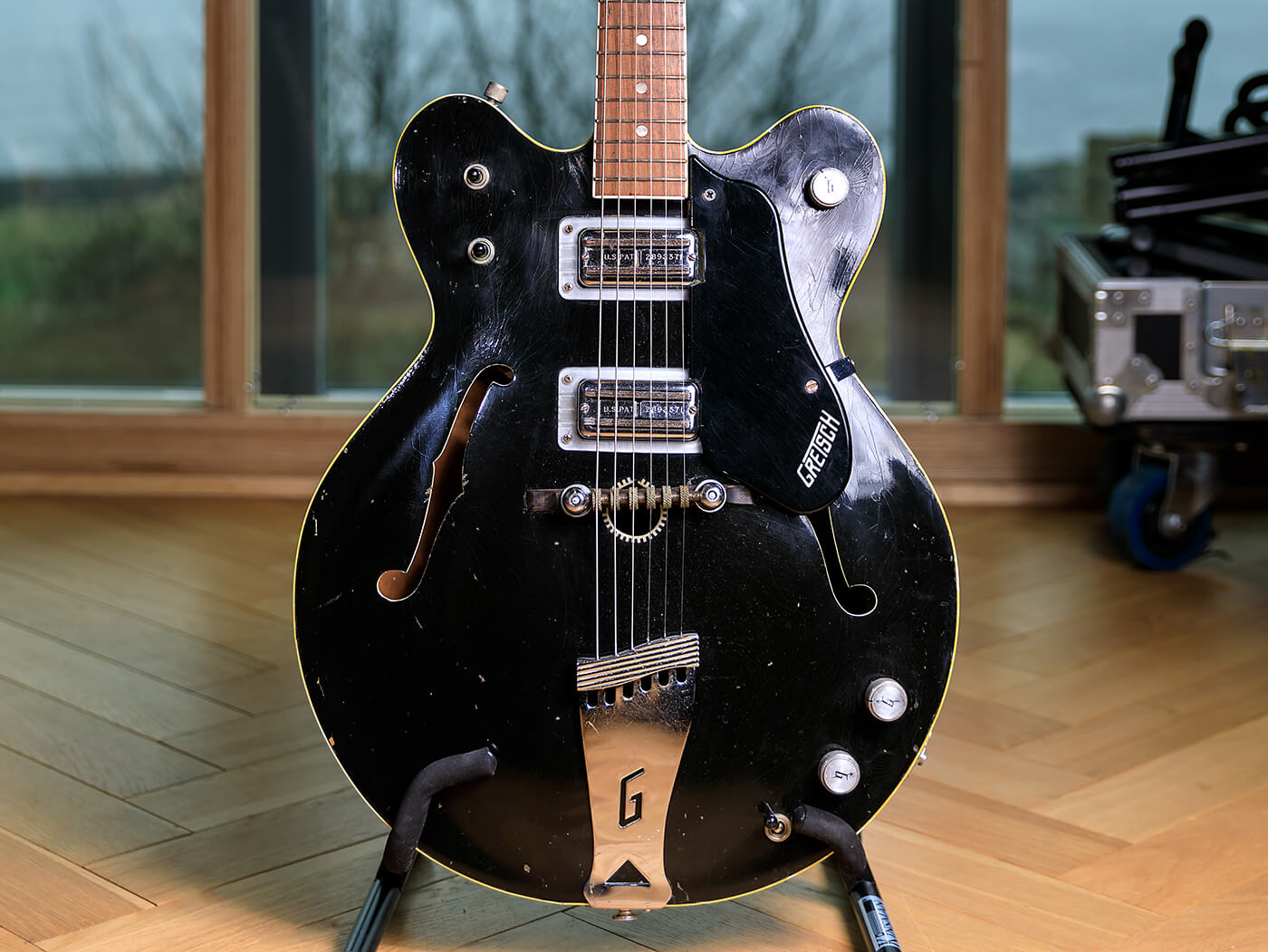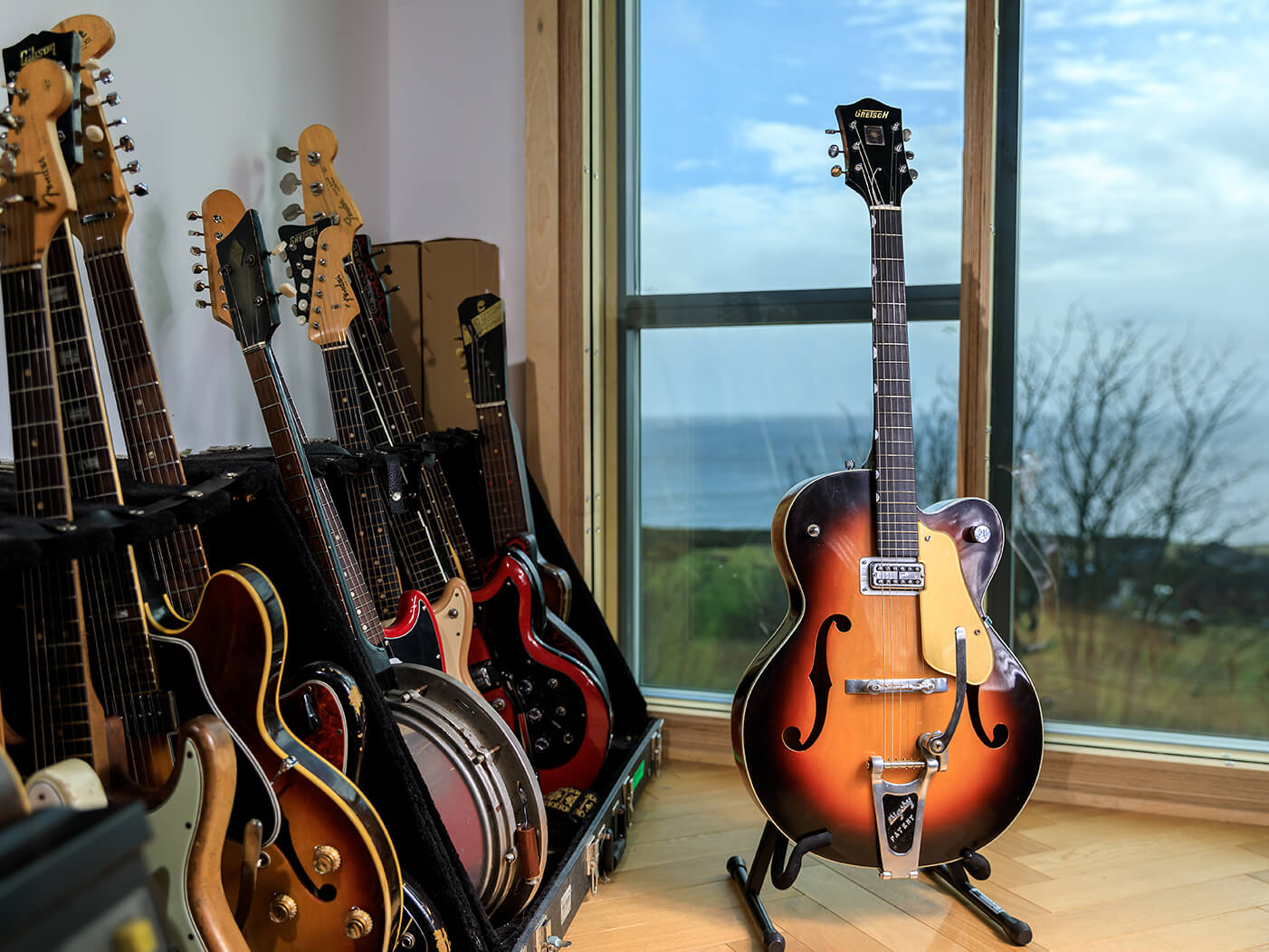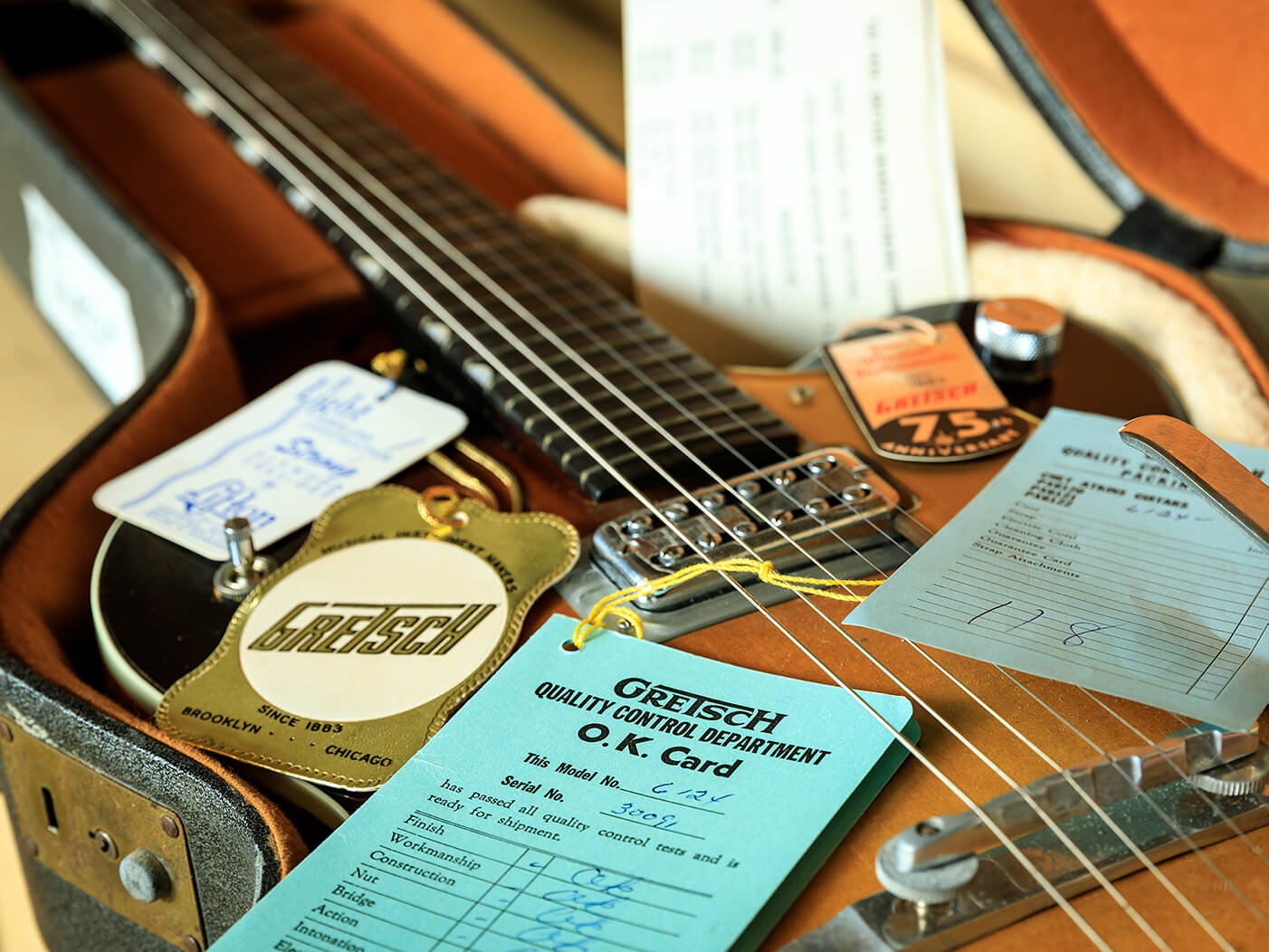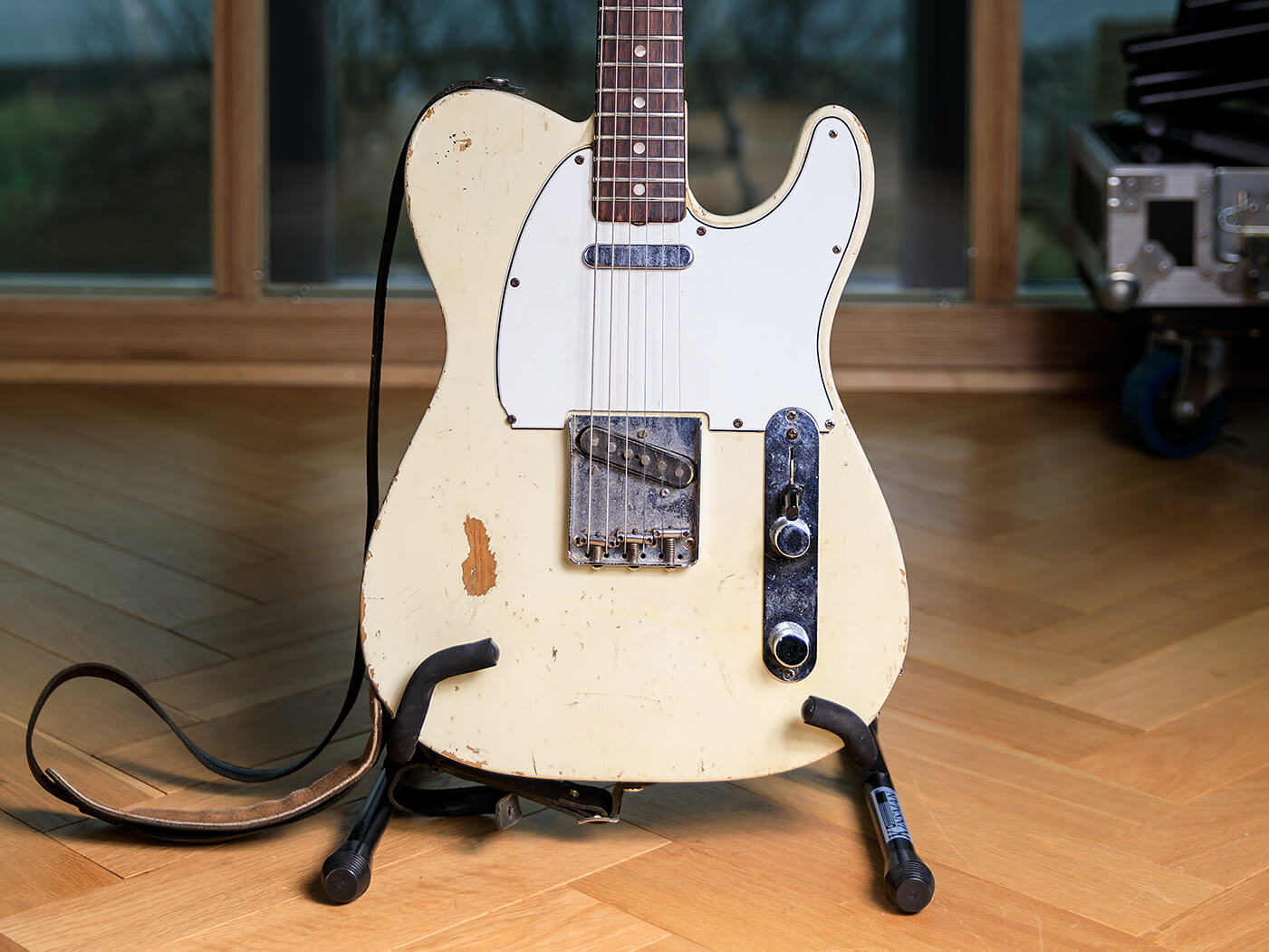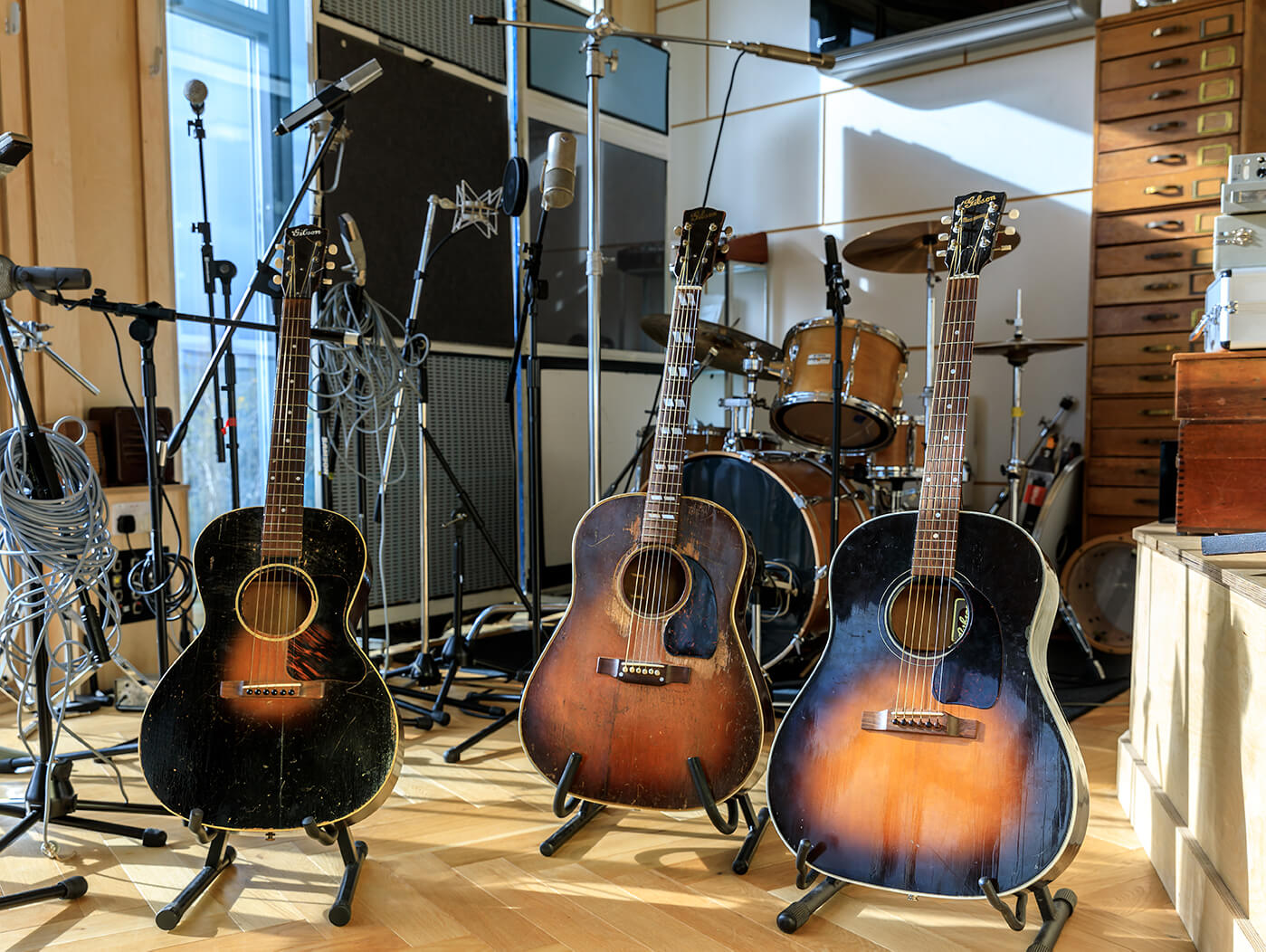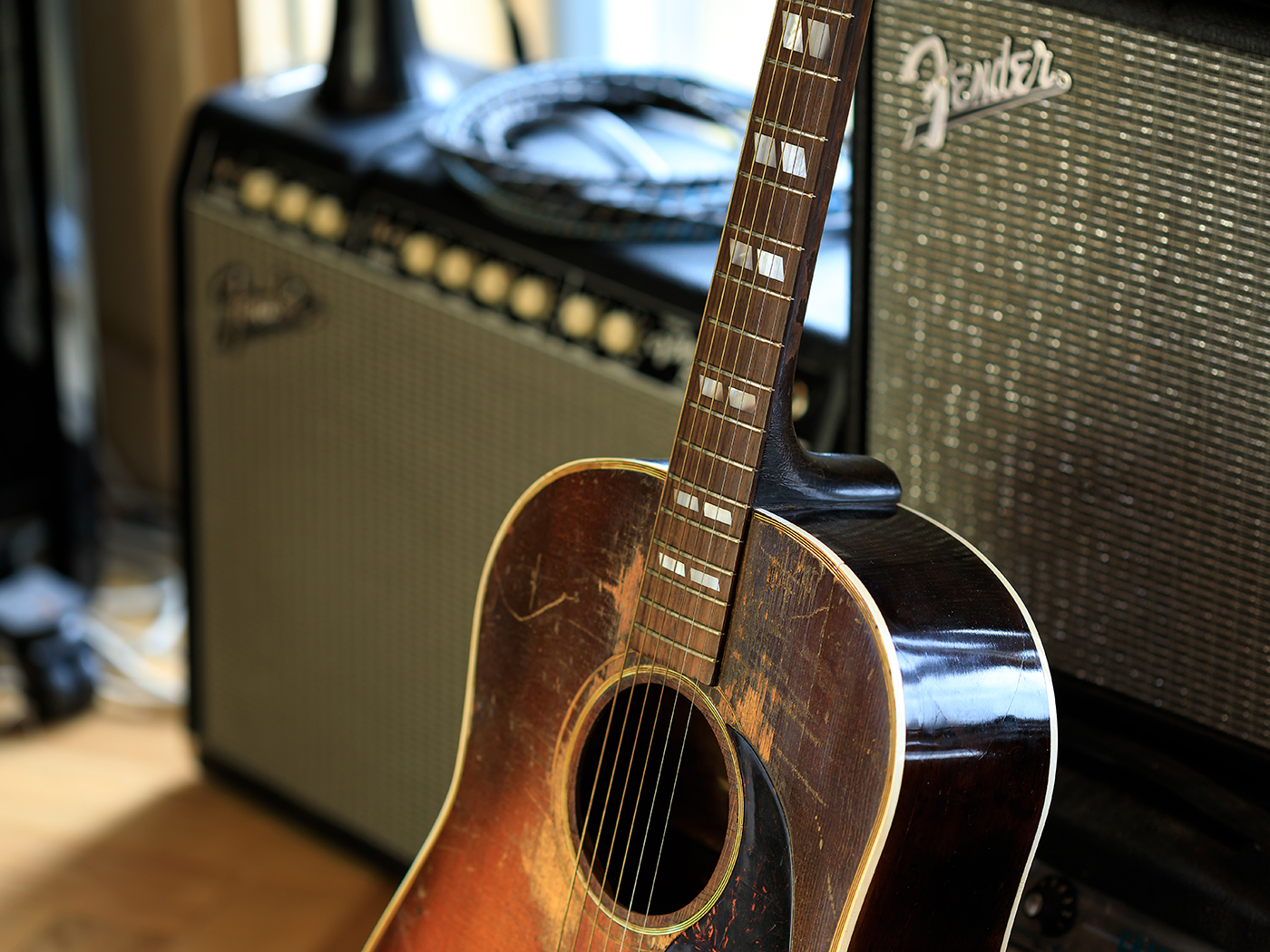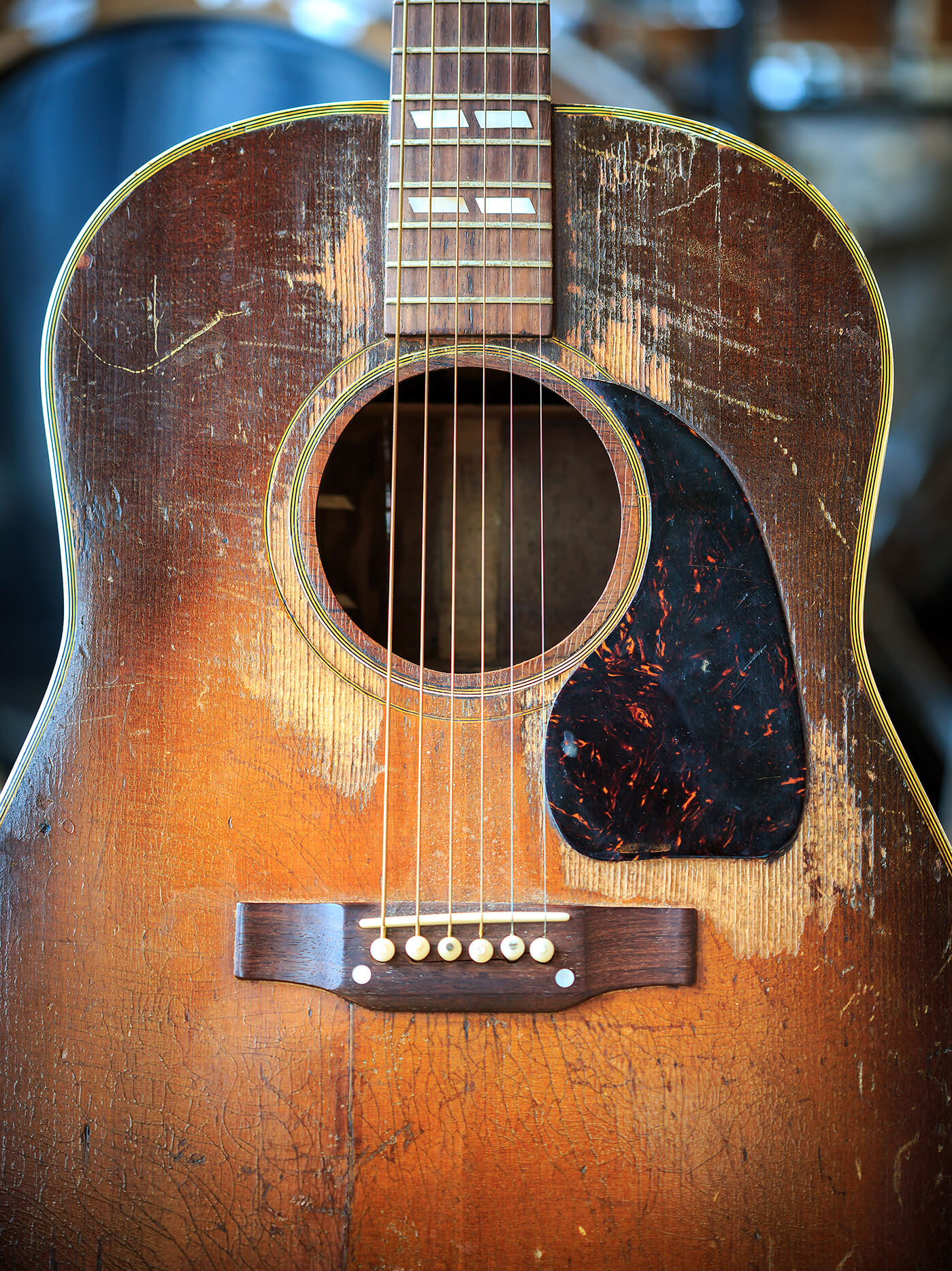Related Tags
“I can still play the guitar crudely”: Edwyn Collins on surviving two strokes
The Scottish songwriter is back with a new album, a replica of his notorious fuzz pedal and a purpose-built studio filled with vintage guitars.
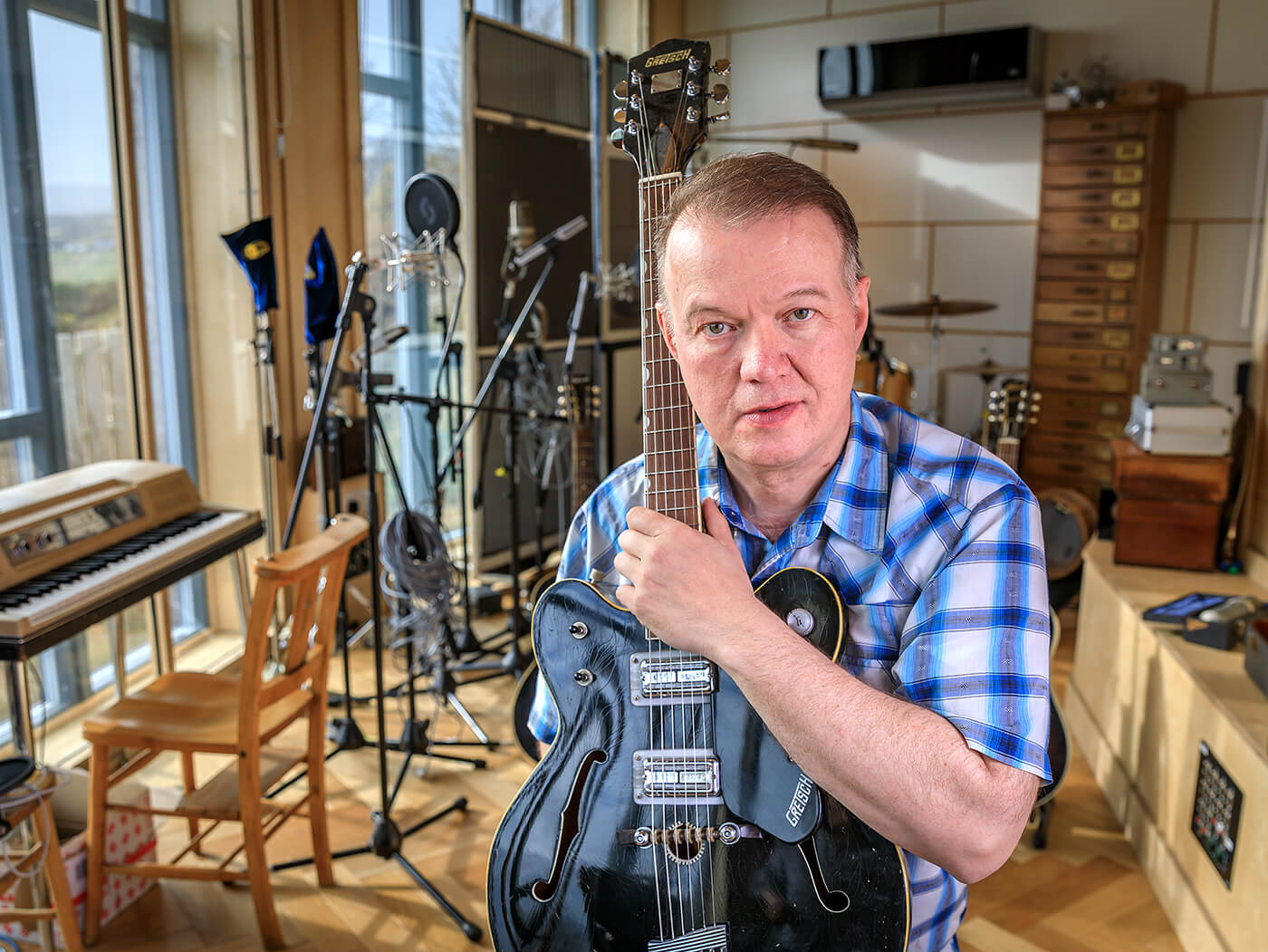
All images: Mark Alexander
There is musical brilliance in writing a riff that connects with people so deeply that it never really leaves them. Recalled at a drop of hat, these irresistible hooks are the antitheses of intricacy, but have ceaseless, persuasive staying power.
The infectious Top 10 hit A Girl Like You, penned by Edwyn Collins, is a perfect example of what an insistent guitar line and a wailing lead can do. Despite being written in 1994, the fuzzed-up single still has bite, swagger and lasting appeal, as does the man who wrote it.
Edwyn is building up to the release of his ninth solo album and fourth since suffering two debilitating strokes in 2005. He says this new release marks a significant milestone in his long and determined recovery. “The lyrics were quite specific and simple back then,” he says, discussing Losing Sleep, the first solo album released after his illness. “I’m not sure what’s going on. Now the lyrics are a progression.”
The new record, Badbea, is named after an abandoned clifftop village five miles north of his home and purpose-built studio, Clashnarrow, in Helmsdale on the north-east coast of Scotland. Edwyn describes the record as forward looking. The lead track, Outside, certainly delivers an anthemic riff driven by a pounding rhythm section. Brooding, brash and raucous, it’s a tricky tune to shift from your inner ear.
Sitting in the comfort of the accommodation wing of his studio, he is charming and exuberant. “It feels brilliant,” he says. “I’ve come a long way, especially in the lyrics department. I’m excited about this new album – touch wood, fingers crossed and all that.”
Home again
Edwyn and his wife Grace moved the songwriter’s London studio to Scotland in 2015, and it’s easy to see why. The new location is perched high above the A9 with 180-degree views of the North Sea and the dramatic weather that sweeps across this awesome coastal landscape. You get the distinct feeling that the inspiration drawn from solitude is never far away.

Although Badbea is Edwyn’s first album at Clashnarrow, he’s sat behind the desk to record other artists who have made the trip up north to check out the studio’s special views and exceptional features. Teenage Fanclub, Hooton Tennis Club, Tracyanne & Danny, Meggie Brown (produced by Alex Kapranos), Shopping and David Gray have all sampled the venue’s fantastic live room and Edwyn’s custom-built analogue Rupert Neve recording console, which was assembled from his library of spares by studio-tech supremo Blake Devitt.
“He said he was going to make me the best Neve desk ever – and he did,” says Edwyn. “My old desk was hot, but this one runs cool and quiet. Everything about it has been perfect. To me, digital is fine, but analogue is magic.”

Evidence of his passion for vintage is everywhere. A wall of compressors, reverbs and other outboard units displaying names such as Raytheon and Teletronix sit behind his studio chair. The live room is populated by a line-up of aged microphones which stand guard over some classic Fender combos. The array of seasoned dials appears to come from the set of a 1960s sci-fi movie, but these are more than just props. Each has its place in Edwyn’s setup and his pursuit of an authentic sound.
Order and logic sit neatly beside flair and attitude in this bespoke studio. But there is also an important place reserved for experimentation. “A Girl Like You was an experiment, especially in the EQ department,” he says. “I tried to do my best with A Girl Like You. EQ is everything.”
Gorgeous guitars
Edwyn’s penchant for the past is particularly evident in his guitar collection, which ranges from pre-war Gibson acoustics to road-worn Fenders and cherished Gretsches. In the beginning, however, he started with a banjo ukulele, moved on to £20 Höfner acoustic before graduating to a Burns Nu-Sonic and 15-watt Watkins Dominator to round off his teenage years.
Without fail, each instrument was bought pre-loved. “I have always liked second-hand stuff – guitars, amplifiers and pedals. I liked going to flea markets and junk shops,” he says. “When I was in my first group, Orange Juice, I got a Gretsch Blackhawk. I saw the advert in the Glasgow Evening Times and got it for £115 in 1979. It has great pickups.”
While Edwyn has always had an eye for a bargain, his ears make most of the decisions about whether a guitar stays or goes. His white 1965 Telecaster, for example, has kept its place in his guitar roster because of its unique sound, but only just. “Everybody loves that guitar; Roddy Frame [Aztec Camera] in particular,” he says. “But the back pickup isn’t a Tele pickup; it’s from a Strat, so it gives it a unique sound. It was like that when I got it.”
Edwyn even tried to gift it to a friend in return for a much-needed favour: “During the late 1980s, Phil Thornalley, who did a lot of work with Orange Juice, helped us out with some studio time. We were broke. I knew Phil loved my Telecaster so I wanted to give it to him to say thanks, but he wouldn’t take it. He is my friend, a lovely guy and generous to a fault. He really helped us out.”
Edwyn’s bargain-hunting prowess was on top form when he bought his 1964 Fender Stratocaster in Denmark Street in 1989 for £800. Stripped of its original finish, this authentic L-Series Strat has the battle scars to prove its worth. “It’s a lovely guitar, and pre-CBS,” he says. “You could just about make out its sunburst when I got it.”
For many people, the shattering strokes that derailed Edwyn’s career in 2005 would have ended any aspiration to play the guitar. But he firmly insists that he still plays and often uses a hammer-on technique to sound chords. “I can still play the guitar crudely,” he says stoically. “I can still sing and I play along with the band in my head.”
Despite frailty down the right-hand side of his body, Edwyn still loves his instruments and acquired his last “posh” guitar in 2007, two years after his illness. The 1958 Gretsch Anniversary arrived with an array of fantastically preserved case-candy goodies. “We bidded for it on eBay and it came from the US,” he explains. “The guy was selling it on behalf of a retired music teacher and jazz player. He was the only owner and he kept absolutely everything.” As you would imagine, the various price tags and receipts only add to the mojo surrounding a 61-year-old guitar.
A trio of Gibsons in the live room have a similar aura, with each bearing the tell-tale signs of a much-loved instrument. Edwyn picks out a beautiful L-00. Known for its bright tone and quick response, the guitar is suited for fingerstyle country-blues, although he maintains it can handle anything. “It has a V-shaped neck,” he explains, “but it’s light. It has everything. It plays beautifully. I still play it from time to time working out chords, choruses and verses. It’s magical.”
Hope and despair
Edwyn Collins has had two careers. The first spanned the incredible success of his band Orange Juice and a solo career filled with TV appearances, sharp suits and success. The second has seen the re-emergence and growing confidence of a prodigious songwriter who was forced to reconstruct his life following the shock and turmoil of a devastating illness.
“I used to write songs on the guitar all the time. Constantly. I was always picking up an unplugged electric while watching the TV,” he says. “Sometimes, I would go to the bedroom to focus with a dictation machine, but not digital; an analogue one. I still pick up the guitar now and think about chords. I plug it in and hammer on chords to come up with tunes, but I have to channel my ideas through my guitar-playing friends now.”
Badbea was co-produced with Sean Read (Dexys Midnight Runners and The Rockingbirds) and recorded with the help of long-term musical collaborators Carwyn Ellis (Colorama) and James Walbourne (The Pretenders and The Rails). Edwyn has a “mad appetite to get out there” to promote the album. His enthusiasm is infectious and his laugh joyous.
Gigs have been lined up later in the year with a familiar group of musicians and a tasty setlist. Edwyn is looking forward to playing his music, although he always has. “Since my stroke, I’ve toured in Japan, Australia, America and Europe. The first show I did in London after my illness was part of the BBC Electric Proms,” he says, smiling.
“After the show, everyone was so drunk, apart from me. The whole place was awash with emotion, champagne and relief, I guess. It was very tense. Roddy Frame played with me. It was great.”
Edwyn Collins is in a good place, content with his lot. After all he has gone through, no one would deny him that.
Badbea is out now.

